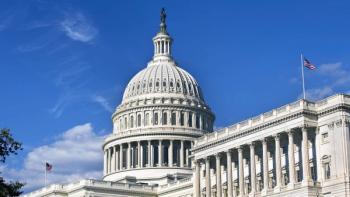
The White House issued an executive order Sunday, Sept. 13, 2020 implementing a policy to link payments for medicines provided through Medicare to prices charged in other industrial countries.

The White House issued an executive order Sunday, Sept. 13, 2020 implementing a policy to link payments for medicines provided through Medicare to prices charged in other industrial countries.

Industry leaders insist they will maintain high standards for clinical trials and regulatory submissions for new vaccines and therapeutics to combat COVID-19.

FDA announced it had issued an emergency use authorization for convalescent plasma that would make it easier to provide this treatment to COVID-19 patients.

A new FDA guidance provides answers to questions about when the agency will seek to visit a site during the COVID-19 pandemic and how it will respond when a needed inspection cannot be conducted safely.

The White House initiative to encourage production of essential medicines in the United States calls on FDA to set the parameters for and implement main aspects of the program.

As biopharma companies and research institutes work to develop vaccines against COVID-19, policy makers and health officials debate strategies for ensuring fair and equitable distribution of anticipated preventives.

Efforts by regulators seek common approaches to clinical research and biopharmaceutical production needed to wipe out the coronavirus pandemic globally.

Patient advocates, research experts, and industry are calling for more user fee revenues to support CBER programs to advance innovative therapies.

Should therapies and vaccines be cheap or free in a pandemic and would that really dry up innovation?

Industry should be seeking more information from FDA on how it will restart its current inspection program.

FDA officials are moving to clarify standards and requirements for vetting and approving viable preventives.

FDA is placing emphasis on developing guidance documents more quickly and efficiently, and agency officials expect that such approaches may continue in the future.

FDA has revoked its Emergency Use Authorization hydroxychloroquine and chloroquine, citing new evidence and reanalysis of earlier data confirming that the drugs show no evidence of effectiveness against the coronavirus and raise continued concerns about cardiovascular safety risks.

Will efforts to limit all returns on investment drive biopharma companies away from developing much-needed interventions for COVID-19.

Advanced analytics streamlines continuous manufacturing by providing improved insights to data.

Despite the clear danger of COVID-19 to global health, vaccine opponents have gained ground, as fearful populations lose faith in the capabilities of industry and government to protect public health.

The White House looks to bring in credible experts for its Operation Warp Speed initiative to advance therapies and vaccines to combat the coronavirus pandemic.

The Trump Administration has awarded a hefty contract to a new pharmaceutical manufacturing consortium to produce in the United States all components of certain critical medicines needed to combat COVID-19.

Biopharmaceutical companies and federal agencies have been working overtime and assuming considerable risk to be able to supply billions of doses of any safe and effective preventive.

Some observers fear that political interference in the process may erode confidence in the scientific basis for FDA regulatory decisions.

Congressional leaders are developing the next version of the 21st Century Cures Act, including provisions to advance research related to the COVID-19 crisis as part of initiatives for bringing innovative therapies to market faster.

With hundreds of clinical trials for potential coronavirus therapies in the works concerns have mounted about the emergence of conflicting data, useless results, and wasted efforts from multiple overlapping efforts.

Drug manufacturers, distributors, and dispensers oppose Buy American policies as likely to reduce reliable supplies and raise product costs.

The bill includes multiple less-noticed provisions to bolster healthcare programs and to advance the development of new treatments and preventives to combat the virus.

FDA is offering advice and added flexibility to help sponsors adjust ongoing and planned clinical research programs during the COVID-19 outbreak.

US and European regulatory officials continue to anticipate supply shortages in multiple areas.

The research community is moving quickly to launch clinical trials of potential countermeasures, while regulatory authorities aim to support product development through regulatory flexibility.

The FDA Commissioner plans to address drug prices, the drug approval process, and supply chain issues during his time as commissioner of FDA.

Top of CDER’s to-do list for 2020 is tracking adverse events more effectively and combating the opioid crisis.

Can a commitment to limit prices to ensure patient access to important new medicines regain public trust and confidence in the biopharmaceutical industry?